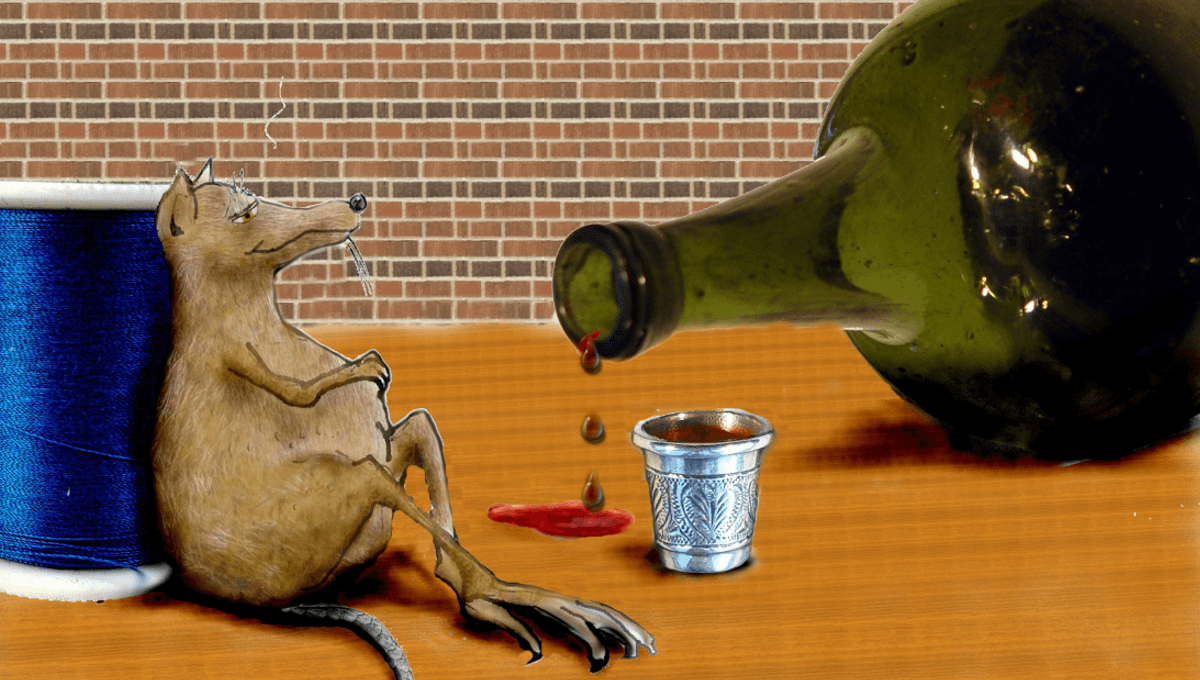
Drunk mice have been spared the prolonged pain of a hangover thanks to a genetically engineered probiotic that expresses an enzyme capable of breaking down alcohol. While simply drinking less is another way to swerve the knock-on health effects of alcohol, it’s hoped the treatment could one day be used in humans to reduce the risk of drink-induced liver and intestinal damage.
When we drink alcohol, our body uses an enzyme called alcohol dehydrogenase (ADH) to metabolize it, breaking it down. However, not all ADH types are equally effective, so researchers wanted to see if they could harness the best performers for preventative therapy.
A form called ADH1B that’s found predominantly in East Asian and Polynesian populations has been found to be 100 times more effective than other ADH variants. This got the team wondering if they could find a way to deliver that specific enzyme to a drinker in a safe and non-invasive way.
A probiotic was their answer, using Lactococcus lactis, a bacterium commonly used in fermentation. Probiotics have recently boomed in popularity thanks to growing research into the way our gut microbiome seems to affect just about everything, and now it could even help us party safer.
The probiotic approach was also deemed safer for humans compared to tinkering with viral vectors as a way of delivering ADH1B, something that’s already been done in mice. But first, they had to check if the genetically engineered bacterial booster worked in experimental conditions.
Researchers fed the probiotic to three groups of five mice, with some groups drinking more alcohol than others. The bacteria had been altered to secrete the enzyme ADH1B and be impervious to stomach acid so that it wouldn’t get destroyed in the digestion process.
The drunkenness of the mice was judged based on their ability to get back on their feet if placed on their backs. Untreated mice generally lost the ability within 20 minutes, but some treated mice remained able to get back on their feet throughout the entire experiment.
The results showed that the treatment reduced alcohol absorption and increased tolerance in the mouse model. It also shortened the severity of their hangovers, as their recovery time was significantly cut down.
As for longer-lasting effects, treated mice also had lower levels of lipids and triglycerides in their livers, two things that typically contribute to alcohol-related damage to the vital organ. Promising results in mice, then, so the next step is to trial the treatment’s efficacy in humans.
“We are excited about the improvement of recombinant probiotics in acute alcohol-induced liver and intestinal damage,” said Dr Meng Dong of the Chinese Academy of Science’s Institute of Zoology in a statement, also noting that its clinical applications may go beyond alcohol-induced health problems. “We believe that genetically engineered probiotics will provide new ideas for the treatment of liver diseases.”
The study is published in Microbiology Spectrum.
Source Link: Genetically Engineered Probiotic Saves Drunk Mice From Hangovers